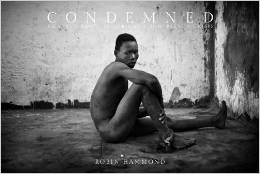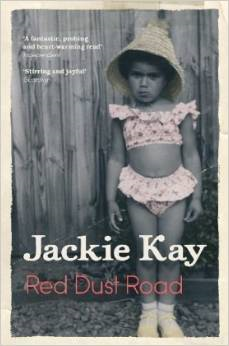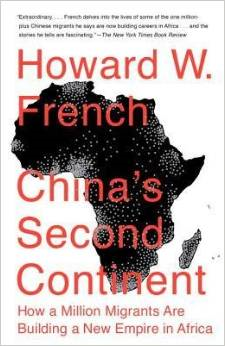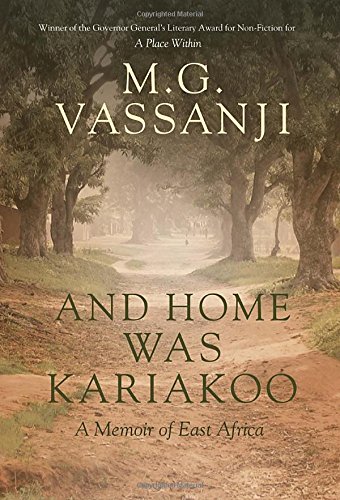Gloria’s New Library Picks – Gloria Reinbergs
All of these selections are new acquisitions at the Toronto Public Library and also available through Amazon. Descriptions of books are all reprinted from Amazon.com
Gbowee, Leymah. Mighty be our powers; how sisterhood, prayer and sex changed a nation at war. Beast books, 2013.
As a young woman, Leymah Gbowee was broken by the Liberian civil war, a brutal conflict that tore apart her life and claimed the lives of countless relatives and friends. Years of fighting destroyed her country—and shattered Gbowee’s girlhood hopes and dreams. As a young mother trapped in a nightmare of domestic abuse, she found the courage to turn her bitterness into action, propelled by her realization that it is women who suffer most during conflicts—and that the power of women working together can create an unstoppable force. In 2003, the passionate and charismatic Gbowee helped organize and then led the Liberian Mass Action for Peace, a coalition of Christian and Muslim women who sat in public protest, confronting Liberia’s ruthless president and rebel warlords, and even held a sex strike. With an army of women, Gbowee helped lead her nation to peace—in the process emerging as an international leader who changed history. Mighty Be Our Powers is the gripping chronicle of a journey from hopelessness to empowerment that will touch all who dream of a better world.
Hammond, Robin. Condemned: mental health in African countries in crisis. FotoEvidence, 2013.
Condemned: Mental Health in African Countries in Crisis by Robin Hammond presents a profound body of work produced over seven years in nine African countries. “Condemned” was selected for the 2013 FotoEvidence Book Award by a prestigious international jury. Hammond captures both the deplorable conditions that the mentally ill endure and the overwhelming challenge that mental health workers face with limited resources and inadequate or failed systems health care systems in which the mentally ill have the lowest priority. Interviews with both the incarcerated mentally ill and those working to heal them – secular mental health workers and both Christian and Muslim faith healers – provide blunt evidence of the past trauma and current suffering of his subjects and the challenges and frustration of those struggling with limited resources to find ways to address the needs of vast numbers of mentally ill.
Kay, Jackie. Red dust road: an autobiographical journey. Picador, U.S.A, 2011.
Once, as a small child, she realizes that her skin is a different color from that of her beloved parents, Jackie Kay embarks on a complicated and humorous journey to treasure the adoptive family that chose her, track down her birth parents—her Scottish Highland mother and Nigerian father—and embrace her unexpected and remarkable life.
In a book shining with warmth, humor, and compassion, she discovers that inheritance is about more than genes: that we are shaped by songs as much as by cells and that our internal landscapes are as important as those through which we move.
Taking the reader from Glasgow to Lagos and beyond, Red Dust Road is revelatory, redemptive, and courageous, unique in its voice and universal in its reach. It is a heart-stopping story of parents and siblings, friends and strangers, belonging and beliefs, biology and destiny, and love.
French, Howard W. China’s second continent: How a million migrants are building a new empire in Africa. Knopf, 2014.
A prizewinning foreign correspondent and former New York Times bureau chief in Shanghai and in West and Central Africa, Howard French is uniquely positioned to tell the story of China in Africa. Through meticulous on-the-ground reporting—conducted in Mandarin, French, and Portuguese, among other languages—French crafts a layered investigation of astonishing depth and breadth as he engages not only with policy-shaping moguls and diplomats, but also with the ordinary men and women navigating the street-level realities of cooperation, prejudice, corruption, and opportunity forged by this seismic geopolitical development. With incisiveness and empathy, French reveals the human face of China’s economic, political, and human presence across the African continent—and in doing so reveals what is at stake for everyone involved.
Owumi, Alex & Daniel Paisner. Qaddafi’s point guard. The incredible story of a professional basketball player trapped in Libya’s civil war. Rodale books, 2013.
Vassanji, M. G. And home was Kariakoo: a memoir of East Africa. Penguin Random House , 2014.
Part travelogue, part memoir, and part history-rarely-told, here is a powerful and timely portrait of a constantly evolving land. From a description of Zanzibar and its evolution to a visit to a slave-market town at Lake Tanganyika; from an encounter with a witchdoctor in an old coastal village to memories of his own childhood in the streets of Dar es Salaam and the suburbs of Nairobi, Vassanji combines brilliant prose, thoughtful and candid observation, and a lifetime of revisiting and reassessing the continent that molded him–and, as we discover when we follow the journeys that became this book, shapes him still.
Obioma, Chigozie. The fishermen. Little, Brown & Company, 2015.
Told from the point of view of nine year old Benjamin, the youngest of four brothers, THE FISHERMEN is the Cain and Abel-esque story of an unforgettable childhood in 1990’s Nigeria, in the small town of Akure. When their strict father has to travel to a distant city for work, the brothers take advantage of his extended absence to skip school and go fishing. At the ominous, forbidden nearby river, they meet a dangerous local madman who persuades the oldest of the boys that he is destined to be killed by one of his siblings.
Nwaubani, Adaobi Trivia. I do not come to you by chance. Hachette Books, 2009.
A deeply moving debut novel set amid the perilous world of Nigerian email scams, I Do Not Come to You by Chance tells the story of one young man and the family who loves him.
Being the opera of the family, Kingsley Ibe is entitled to certain privileges–a piece of meat in his egusi soup, a party to celebrate his graduation from university. As first son, he has responsibilities, too. But times are bad in Nigeria, and life is hard. Unable to find work, Kingsley cannot take on the duty of training his younger siblings, nor can he provide his parents with financial peace in their retirement. And then there is Ola. Dear, sweet Ola, the sugar in Kingsley’s tea. It does not seem to matter that he loves her deeply; he cannot afford her bride price.
It hasn’t always been like this. For much of his young life, Kingsley believed that education was everything, that through wisdom, all things were possible. Now he worries that without a “long-leg”–someone who knows someone who can help him–his degrees will do nothing but adorn the walls of his parents’ low-rent house. And when a tragedy befalls his family, Kingsley learns the hardest lesson of all: education may be the language of success in Nigeria, but it’s money that does the talking.
Unconditional family support may be the way in Nigeria, but when Kingsley turns to his Uncle Boniface for help, he learns that charity may come with strings attached. Boniface–aka Cash Daddy–is an exuberant character who suffers from elephantiasis of the pocket. He’s also rumored to run a successful empire of email scams. But he can help. With Cash Daddy’s intervention, Kingsley and his family can be as safe as a tortoise in its shell. It’s up to Kingsley now to reconcile his passion for knowledge with his hunger for money, and to fully assume his role of first son. But can he do it without being drawn into this outlandish milieu?








